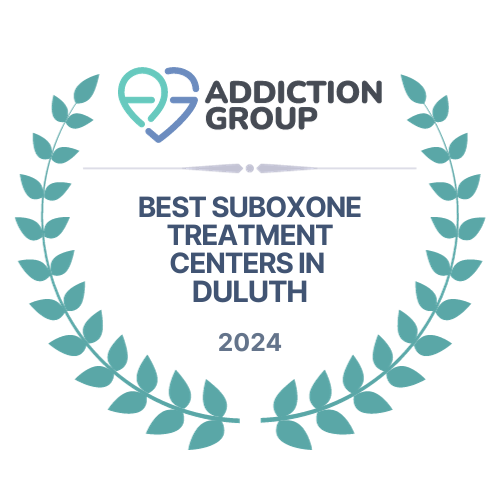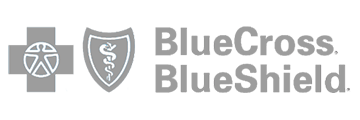Substance Abuse
What Is Suboxone?
Medically Reviewed By
Written By
Last medically reviewed February 6, 2025
Substance Abuse
Medically Reviewed By
Written By
Last medically reviewed February 6, 2025
Contact Southeast Addiction today.
Have you ever wondered about the many treatments that are available in treating opiate addiction? Suboxone is a prominent drug on the market that is intended to treat opiate addiction.
Its ingredients are a combination of buprenorphine and naloxone. Buprenorphine is a typical opioid medication and naloxone will block out the effects of the opioid medication.
This can include relief of pain and the feelings that trigger opioid abuse in the first place.
It should be noted that Suboxone is not intended to be used as a pain medication. It’s specifically targeted for those afflicted with opiate addictions and should not be used for other purposes.
We’re going to deep dive into the incentives of using Suboxone, the risk factors, proper way to take it, and much more.
If you’d like to learn more, be sure to coordinate with your local Suboxone detox in Atlanta, GA.
Like with most medications or other forms of remedies, there is a risk factor if you’re not taking the medication properly, and yes, there can be an addictive component to this like with any other substance.
Suboxone has the ability to stop or slow down your breathing completely, and it can be habit-forming. Misuse of the medication can lead to death, overdose, and addiction.
Fatal side effects will only ever occur if you are mixing the medicine with alcohol or any drugs that impair your breathing and cause drowsiness.
“Intoxication from Suboxone does not occur if a patient is opioid dependent. The misuse can be addressed with increased monitoring, urine drug testing, and film/pill counts”, which was a finding and direct statement made by Dr. Jennifer R. Velander of The Ochsner Journal.
Peer-reviewed journals and coordination with Suboxone treatment centers in Atlanta, GA, are two resources that will provide you with a plethora of information, so that you can make informed decisions when taking certain drugs for opiate addiction.
It’s not advisable to take Suboxone if you are allergic to naloxone or buprenorphine.
To ensure that the medicine will be safe to take, make your doctor wary if you’ve experienced the following symptoms:
For women who are pregnant, there is a chance that your newborn will become dependent on this drug. Withdrawal symptoms could appear after the baby is born.
Babies that are relying on opioids could be that way for many weeks.
You should also advise your doctor if you’re breastfeeding while using Suboxone.
Be diligent when taking Suboxone. Don’t deviate from the recommended doses that your doctor has prescribed for you.
Never use this medication in larger amounts or longer than when your treatment is supposed to conclude.
If you are developing a dependency on this medicine, feel free to coordinate with your doctor to air these grievances.
Before ingesting the medicine, be sure to take it with water to keep your mouth moist. This will make it easier for the film to dissolve.
When the film is dissolving, don’t chew or swallow it because the medicine will not work properly.
Additionally, don’t share the medicine with another person, especially for those who have a history of abusing drugs or have addictive personalities.
Store the medication in an area where no else will have easy access to it. Any attempt to resell this medication is against the law, and is in fact punishable.
All of the doctors that you see regularly should be fully aware of the medication you are taking, especially if it’s something as vital as Suboxone.
Unlocking the Power of Suboxone Treatment
Suboxone treatment is a powerful solution for individuals struggling with opioid addiction. This innovative approach combines two key components: buprenorphine and naloxone. Buprenorphine acts as a partial opioid agonist, engaging brain receptors similarly to opioids but with reduced intensity. On the other hand, naloxone serves as an opioid antagonist, counteracting the effects of opioids.
The combination of these medications makes Suboxone an optimal choice for combating opioid addiction. By alleviating withdrawal symptoms and cravings while deterring misuse or abuse through its sublingual tablet form, Suboxone offers a comprehensive approach to recovery.

Choosing a suitable treatment provider is paramount when considering Suboxone treatment. Here are some essential factors to consider:
Before embarking on Suboxone treatment, take necessary steps to prepare yourself mentally and physically:
During your Suboxone treatment, it is important to understand what to expect:
Possible side effects may include constipation, nausea, headache, insomnia, and sweating. However, these side effects typically subside as the body adjusts to the medication. If severe side effects occur or persist beyond a few days, consult your healthcare provider immediately for further guidance on managing them effectively.
After completing your Suboxone treatment, post-treatment care and maintenance are crucial for long-term success in overcoming opioid addiction. Here are some important steps to follow:
Remember, recovery is an ongoing process that requires dedication to your treatment plan and transparent communication with healthcare providers. By actively participating and seeking support, you can achieve lasting recovery and reclaim control of your life.
Embarking on Suboxone treatment for opioid addiction requires careful planning and decisive action. Here are the essential steps to take:
Suboxone is a medication used to treat opioid addiction. It should only be taken under the supervision of a healthcare provider, as misuse can lead to dependence and other serious side effects. Consult with a doctor for proper guidance.
It’s your job as a patient who is actively using Suboxone, to be mindful of how you use it and where it’s stored. As previously mentioned, don’t use the medication for other purposes than what it was prescribed for!
For more information on Suboxone, you can contact our team at Southeast Addiction, which is a Suboxone treatment center in Norcross & Atlanta, GA.
We will work with you in treating opiate addictions, and will advise you of the appropriate protocols to follow, when taking a form of treatment like Suboxone.
Always remember to coordinate with your healthcare provider to see what else can be done to accommodate your personal battle in curbing your opiate addiction and utilizing the appropriate doses for treatment.






